Misconduct prevention system
Ethical issues and misconduct prevention form an area covered by the LOTOS Group Corporate Social Responsibility Strategy for 2012-2015, approved by the Board of Grupa LOTOS in 2012. For this area, the following key objective was defined: to improve management by ensuring ethical conduct and the transparency of business processes, as well as protecting of the organization against the risk of irregularities that may threaten its operations.
With a view to achieving this objective, in 2012 the LOTOS Group implemented a misconduct prevention system, which undergoes constant development. The system is rooted in, and further refined, based on Managing the Business Risk of Fraud: A Practical Guide – a manual prepared by the Institute of Internal Auditors, the American Institute of Certified Public Accountants, and the Association of Certified Fraud Examiners.
The prevention system in place at the LOTOS Group is geared towards ensuring an optimum degree of resistance to misconduct.
Resistance to misconduct is achieved by companies which utilise their awareness of real and perceived misconduct threats arising in the course of their operations to implement and apply the solutions that are best adapted to the scale and nature of the risk, and that are geared towards preventing, detecting and responding to such threats.
The purpose of these efforts is to secure the organization's ability to:
- mitigate the risk of misconduct,
- reduce the harmful effects of misconduct,
- gather resources which will accelerate the organization's return to its pre-misconduct state.
The implementation of a comprehensive misconduct risk management system has been confirmed as a valid course of action by the Association of Certified Fraud Examiners in its 2012 Report to the Nations, which presented the results of research into the nature and scale of misconduct in individual industries.
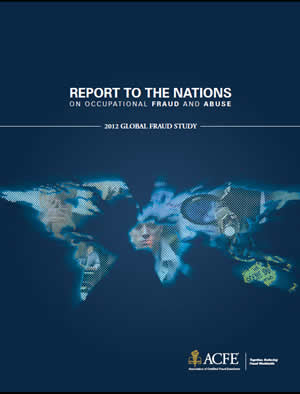
Oil and gas companies rank fourth in terms of losses incurred as a result of individual cases of misconduct and second in terms of the number of corruption incidents. The latter accounted for some 50% of all misconduct cases.
The LOTOS Group’s misconduct prevention system has been developed based on solutions taking into account the importance and effectiveness of internal auditing procedures and independent reviews carried out by management staff. This is in compliance with the approach presented by the results of the ACFE report and in line with the best market practice.
With this in mind, we decided to incorporate misconduct prevention into our enterprise risk management procedure. We construe misconduct as an intentional act or omission which constitutes a violation of the applicable laws, committed to secure unlawful gains or resulting in a loss for the Company, including any forms of corruption.
The Ethical Conduct Programme and the Misconduct Risk Management Policy in place at the LOTOS Group serve to mitigate the risk of misconduct. By comprehensively pursuing these programmes, we intend to safeguard the Company's reputation and assets, as well as to ensure that our decisions are effective and enhance the value of the Company.
The Ethical Conduct Programme
is pursued with the use of the Code of Ethics, the Ethics Officer and the Ethics Hotline, and by promoting awareness of and communication of ethical issues. The purpose of these efforts is to encourage the LOTOS Group's employees to behave in accordance with an appropriate ethical culture.
Elements of the Ethical Conduct Programme
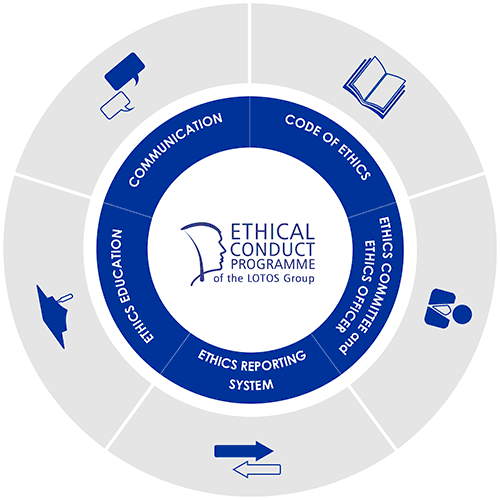
The centrepiece of the Ethical Conduct Programme is the LOTOS Group's Code of Ethics, which has been in force since January 2013. The Ethical Conduct Programme is overseen by the President of the Board of Grupa LOTOS, the Ethics Committee, and the Ethics Officer.
The Ethics Committee is a body assigned to support the work of the Ethical Conduct Programme to develop a corporate culture based on ethical values. The Committee is composed of widely respected representatives of each of the LOTOS Group's operating segments.
The responsibilities of the Ethical Officer include promoting knowledge of the Code of Ethics, providing support in discussing ethical dilemmas voiced by employees, and organizing the process of reporting and investigating violations of the Code.
Ethics education plays a key role in developing desirable attitudes, by familiarising the recipients of the Code of Ethics with its provisions and educating them on proper ethical conduct in specific business situations. In 2013, we pursued a number of initiatives aimed at increasing the awareness and knowledge of business ethics at the LOTOS Group, which included:
- Discussing ethical issues as part of the training for newly hired employees;
- Organizing voluntary 'The LOTOS Group Ethical Principles in Practice' workshops for employees and management personnel;
- Organizing meetings with the LOTOS Group's management staff to discuss the implementation of the Code of Ethics;
- Incorporating the issue of business ethics into regular communication both at the LOTOS Group and with the LOTOS service station operators.
| Ethics education at the LOTOS Group in 2013 | |
|---|---|
| Number of newly hired employees trained | 56 |
| Number of participants of the 'The LOTOS Group Ethical Principles in Practice' workshops | 69 |
| Number of management staff participating in meetings implementing the Code of Ethics | 282 |
| Number of LOTOS service station operators to whom the knowledge of ethical issues was directly communicated | 261 |
The Misconduct Risk Management Policy
consists in the coordination of misconduct prevention and detection measures (identification and evaluation) implemented in individual business processes, misconduct prevention education, as well as overall assessment of the organization's resistance to misconduct.
Elements of the Misconduct Risk Management Policy
{GRI SO3}
As in the case of the Ethical Conduct Programme, under the Misconduct Risk Management Programme we also aim to educate senior executives and managers in corporate misconduct issues. The purpose is to raise their awareness of corporate misconduct, making them realize the potential losses and risks to the organization, how it is committed, as well as how it is identified and prevented. In 2013, the operation of the LOTOS Group’s misconduct prevention system was discussed, with a particular emphasis on compliance with the Misconduct Prevention Policy adopted by the Board of Grupa LOTOS to define the employees’ responsibilities and methods of communicating any identified instances of misconduct, including corruption.
| Percentage of Grupa LOTOS employees trained in the organization’s anti-corruption policies and procedures | |||
|---|---|---|---|
| Position type | 2011 | 2012 | 2013 |
| Management positions | 8.9 | 62.5 | 32 |
| Other positions | 7.4 | 5.7 | 7 |
Channels dedicated to reporting suspected misconduct are available to all employees, as well as external stakeholders. According to the Misconduct Prevention Policy, every employee is obliged to immediately report any such suspicion.
As part of the misconduct prevention system, we conduct periodic assessments of the organization’s resistance to misconduct. The first results of this exercise were available in 2013, confirming that the measures taken are both thorough and systematic.
{GRI SO2}
As part of the assessment of the organization’s resistance to misconduct, we also examined the risk of corruption. In line with the adopted methodology, the heads of the Company’s organizational units were asked to comment on all processes in place at Grupa LOTOS in a questionnaire-based survey.
| Business units of the LOTOS Group assessed for corruption risk in 2012-2013 | |
|---|---|
| Total number of units | 15 |
| Percentage of units subject to assessment | 7% |
{GRI SO4}
One noteworthy fact is that in 2013 there was no single event resulting in dismissal or disciplinary action against an employee at the LOTOS Group on charges of corruption, nor were there any instances of a business contract not being renewed because of a breach of the rules for counteracting corruption.





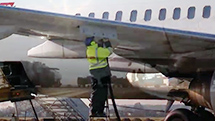

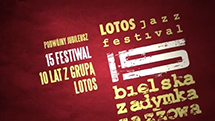








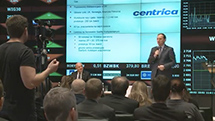
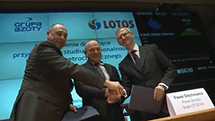

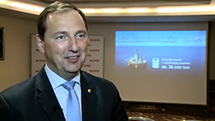
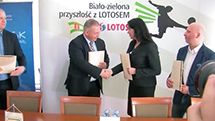
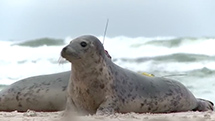



 E-mail
E-mail Facebook
Facebook Google+
Google+ Twitter
Twitter